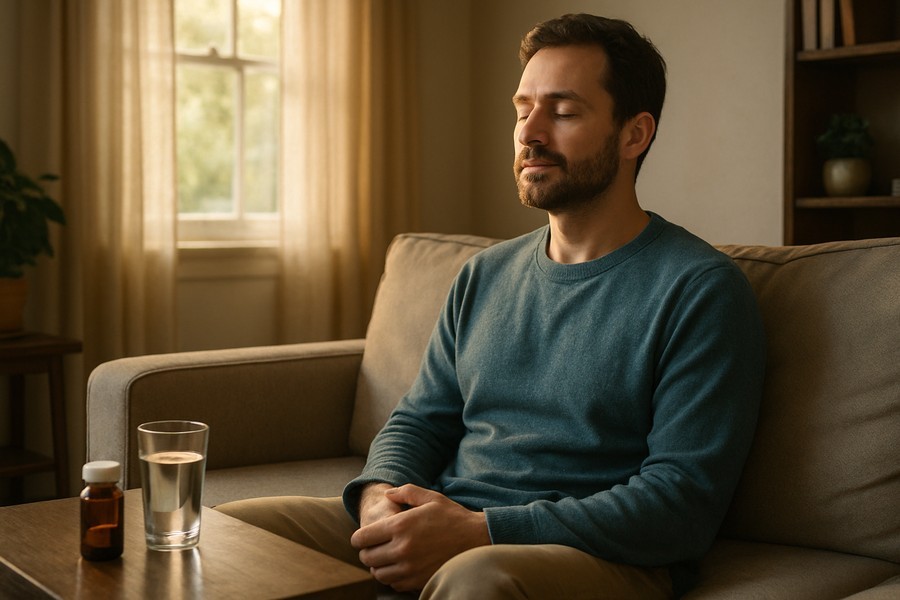
Single Dose of Psychedelic Substance May Combat Anxiety
According to recent research, a one-time administration of a specific psychedelic substance may offer lasting relief from anxiety and depression.
The research focused on 198 adults suffering from Generalized Anxiety Disorder (GAD), a debilitating form of anxiety that afflicts roughly 10% of people within a year.
Study Findings
Those participants who were given lower dosages of the psychedelic substance (25 or 50 micrograms) showed no significant improvement compared to those given a placebo. However, those treated with higher dosages (100 or 200 micrograms) showed swift and significant improvement, as stated by the research team in the Journal of the American Medical Association.
By the following day, these participants were already displaying marked improvements. These positive changes then remained consistent throughout the duration of the 12-week study.
Questions Remain
Some questions still linger regarding whether certain non-medicinal factors contributed to the success of this treatment, such as the sensory environment in which the treatment was administered. The belief is prevalent among researchers in the field of psychedelics that the correct mindset going into a psychedelic experience, as well as the right sensory environment, can significantly impact the effectiveness of the treatment.
A Unique Treatment for Anxiety
Generalized Anxiety Disorder is defined by persistent worry, an inability to relax, and physical symptoms such as increased heart rate and excessive sweating. It's often accompanied by depression. The current medications available for treating GAD have proven insufficient for approximately 50% of those diagnosed.
The psychedelic substance under study is unlike conventional treatments for GAD. As one researcher puts it, it offers a "very, very distinct subjective experience", often referred to as a trip. Participants in the study who received higher dosages of this substance, sufficient to induce a psychedelic experience, were more likely to see their symptoms improve and their depression alleviate.
Non-Medicinal Factors
Psychedelic treatments often involve guides or therapists who help to ensure a patient's psychedelic experience is both safe and effective. Additionally, treatment centers typically provide rooms with soft lighting, natural decor, and music or other sensory stimulation. However, in this study, it remains unclear whether these environmental factors played a significant role in the treatment's success.
The treatment sessions were observed by two monitors and were conducted in a pleasant, private room with standardized music and eyeshades available for participants.
Looking to the Future
Recent research such as this study signifies an emerging trend in the field of psychedelic research: Large, rigorous studies that are more likely to gain support from pharmaceutical companies. These types of studies are necessary for psychedelic substances to gain approval from the Food and Drug Administration (FDA).
Providing doctors with approved psychedelic substances could "revolutionize treatment" of psychiatric conditions ranging from depression to PTSD and addiction, says one researcher. "A whole mindset shift is going to happen around that."
Indeed, the FDA appears receptive to the potential of these substances, having already granted the psychedelic substance used in the study "breakthrough therapy" status. This designation is intended to expedite the evaluation of promising new drugs.
